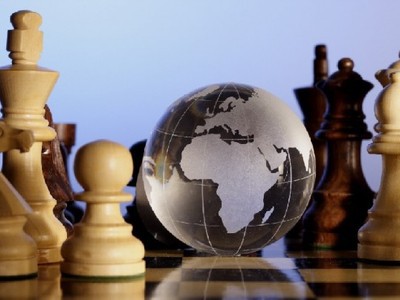
Robert Steuckers:
De quelques questions géopolitiques inhabituelles
Entretien accordé à J. P. Zúquete, dans le cadre d’un mémoire universitaire
Acceptez-vous l’étiquette de “nouvelle droite”?
Personne dans la “nouvelle droite” ou en marge de celle-ci n’a jamais accepté l’étiquette, inventée par les journalistes dénonciateurs du Nouvel Observateur de Paris en 1979. Seul peut-être Jean-Claude Valla, aujourd’hui décédé, a-t-il profité de ce label pour ancrer son équipe dans le paysage journalistique français, à une époque où elle investissait le Figaro Magazine. Dans le cadre de ce nouvel hebdomadaire à succès, dirigé par Louis Pauwels, cette étiquette pouvait séduire. Aujourd’hui, il convient de dire tranquillement qu’elle n’est plus de mise, qu’elle est une sorte de vocable-reliquat, de joujou idéologique pour faire mousser les dinosaures d’une gauche hystérique et groupusculaire, généralement utilisée par les services pour perpétrer des “coups tordus”. L’évolution ultérieure de quasi tous les animateurs du “Groupe de Recherche et d’Etudes pour la Civilisation Européenne” (ou GRECE) et, même, du “Club de l’Horloge” (qui en était distinct à partir de la fin des années 70), a amené leurs réflexions bien au-delà de l’ensemble circonscrit des droites françaises, sans pour autant nier certaines bases théoriques qui sont soit conservatrices au sens le plus général du terme, soit nationalistes-révolutionnaires, au sens proudhonien du terme ou au sens du non-conformisme des années 30. Alain de Benoist, qui aime qu’on écrive de lui qu’il est une “figure de proue” de ce mouvement dont il récuse pourtant l’étiquette, ne peut plus, aujourd’hui, être considéré comme appartenant au champ des droites françaises, vu qu’il s’est très nettement démarqué de l’actuelle idéologie dominante, le néo-libéralisme, flanqué de son cortège d’idéologèmes boiteux et de nuisances idéologiques que l’on appelle le “politiquement correct”.
Les animateurs de la “nouvelle droite” (selon l’étiquette forgée par le Nouvel Observateur) n’ont donc pas adopté les schèmes du néo-libéralisme, toutes variantes confondues, et n’ont jamais embrayé sur la vague néo-atlantiste que l’on observe en France depuis l’arrivée de Mitterrand au pouvoir en 1981, vague qui s’est renforcée et a submergé les ultimes redoutes du gaullisme de tierce voie. En critiquant le néo-libéralisme, comme nouvelle idéologie nuisible et posée par ses thuriféraires comme universaliste, et en refusant la logique atlantiste, ces animateurs dits “néo-droitistes” ont forcément emprunté des formes critiques auparavant ancrées à gauche de l’échiquier idéologique français et abandonné l’anti-gaullisme des vieilles droites françaises pour opter en faveur d’une sorte de néo-gaullisme, hostile aux politiques suggérées par l’hegemon américain depuis Carter et Reagan. La critique du néo-libéralisme (toutefois assez insuffisante au sein de l’actuelle “post-nouvelle-droite” quant au nombre de textes fondateurs) et le rejet de l’atlantisme des post-gaullistes et des socialistes font que les avatars actuels de la “nouvelle droite” —fustigée par les journalistes du Nouvel Observateur en 1979— sont l’expression d’une fusion originale d’éléments auparavant (et apparemment) hétérogènes. Par rapport à ce qu’elle a pu être éventuellement dans sa préhistoire (années 60 et première moitié des années 70) ou à ce qu’elle était quand une partie de ses animateurs investissait avec Jean-Claude Valla le Figaro Magazine de Louis Pauwels, le mouvement pluriel (à têtes multiples) que l’on appelle toujours par convention et par paresse intellectuelle la “nouvelle droite” constitue aujourd’hui une synthèse nouvelle, qui opère des convergences, mais toujours partiellement, avec des mouvements issus de milieux complètement différents, ancrés ailleurs avant 1979 ou nés de circonstances nouvelles, propre aux années 90 du 20ème siècle ou aux quinze premières années du 21ème.
Reste aussi à signaler que les rangs de la génération fondatrice se sont éclaircis, par la force des choses, et que les réflexes politiques et les sentiments de ces anciens ne sont plus nécessairement partagés par des générations nouvelles (moins nombreuses toutefois) qui, sociologiquement parlant, ont eu d’autres jeux, d’autres distractions, vécu au sein d’un système scolaire différent (et surtout déliquescent), se sont plongées dans l’univers de l’informatique puis du multimédia, n’ont plus que de vagues souvenirs des réalités si pesantes, si déterminantes, d’avant 1989 (guerre d’Algérie, décolonisation, Rideau de Fer, bloc soviétique, etc.).
J’appartiens évidemment à une fournée tardive qui s’est forgé dès la prime adolescence une vision du monde alternative, disons, à partir de l’année 1970, où j’avais quatorze ans. La période de maturation première et confuse s’est déroulée jusqu’en 1974, année où j’achève mes secondaires et où je rentre à l’université. Dès 1974, ma vision philosophique et politique se précise grâce à des amis comme Bernard Garcet, Frédéric Beerens, Alain Derriks, etc. Ces citoyens belges ne sont évidemment pas marqués par les événements d’Algérie, comme leurs contemporains français, et ne raisonnent jamais selon les clivages habituels du monde politique français, en dépit de la très forte influence de la presse et des médias français sur la partie francophone de la Belgique (j’étais le seul qui lisait en néerlandais et en allemand, vu que j’étudiais les langues). Garcet s’intéressait surtout à l’école italienne (Mosca, Pareto), Beerens aux sciences de la vie (Konrad Lorenz, Robert Ardrey), Derriks, journaliste de formation, aux idéologies politiques, à l’actualité la plus brûlante. C’est dans nos échanges hebdomadaires, ou au cours de voyages, où nous commentions nos lectures et l’actualité, que mes options personnelles se sont consolidées entre 1974 et 1980, années où, justement, la géopolitique revient à l’avant-plan, surtout parce que depuis le coup de Kissinger, qui parvient en 1972 à s’allier à la Chine maoïste, on s’aperçoit, d’abord timidement, que les critères géopolitiques pèsent plus lourd que les positions idéologiques. Derriks et moi potasserons —suite à un article de la revue évolienne et “traditionaliste-révolutionnaire” Totalité, animée par Georges Gondinet, Philippe Baillet et Daniel Cologne— le travail du général italien Guido Giannettini (Dientre la Granda Muraglie) qui fut quasiment le premier à préconiser un renversement d’alliance pour l’Europe: si les Etats-Unis, sous l’impulsion de Kissinger et de Nixon, s’alliaient à la Chine pour faire pression sur l’Union Soviétique et pour se maintenir par la même occasion en Europe occidentale, il fallait, sans adopter nécessairement le système économique communiste, s’allier à Moscou pour fédérer les peuples de souche européenne dans la partie septentrionale de l’Eurasie. Jean Parvulesco et Jean Thiriart emboîteront le pas. Par ailleurs, Alexander Yanov, un dissident libéral soviétique exilé en Californie, hostile au néo-slavisme officiel en plein développement dans l’URSS d’alors, démontrait que la néoslavophilie du régime et de la dissidence enracinée s’opposait à un occidentalisme russe présent dans la dissidence (Sakarov) et dans le PCUS au pouvoir. Notre position face à cette première définition par le libéral-occidentaliste Yanov de la “Russian New Right” (1): soutenir la néo-slavophilie dans le régime et dans la dissidence, chez Valentin Raspoutine, primé en URSS, et chez Soljénitsyne, exilé dans le Vermont. Position implicitement partagée par de Benoist (qui recense l’ouvrage de Yanov dans les colonnes du Figaro Magazine) et par l’observateur du monde slave dans la presse non conformiste allemande de l’époque, Wolfgang Strauss, ancien déporté du Goulag de Vorkhuta, qui n’a cessé de plaider pour une alliance de tous les slavophiles.
Les travaux géopolitiques de Jean Thiriart ont-ils influencé vos thèses sur l’Europe?
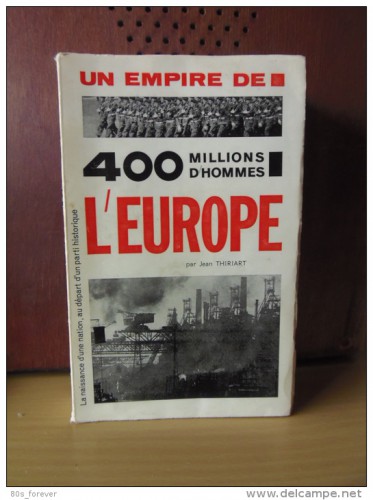 Jean Thiriart n’a pas, à proprement parlé, rédigé de travaux spécifiquement géopolitiques. Dans les années 60, à l’apogée de son engagement politique sur la petite scène belge (assurément trop étroite pour lui!), il a cependant montré qu’il avait du flair en la matière. Dans l’espace de plus en plus réduit de ceux qui déploraient la défaite européenne (et non pas seulement allemande) de 1945, Thiriart, qui avait horreur des nostalgies qu’il considérait comme des anachronismes incapacitants, voulait réconcilier les volontés, de gauche comme de droite, rejetées dans les marges de nos mondes politiques au moment où se déployait la société de consommation, celle “du frigidaire et du Coca-Cola de Tokyo à San Francisco”. On peut évidemment affirmer que Thiriart opte pour cette position —celle de réconcilier les volontés apparemment hétérogènes sur le plan idéologique— afin d’adopter un discours de “libération continentale”, de dégager l’Europe de l’Ouest et l’Europe de l’Est de la bipolarité instaurée à Yalta en 1945, parce qu’il est lucide et rationnel et sent bien que cette césure au beau milieu du continent entraîne, sur le long terme, la déchéance de notre espace civilisationnel. De fait, Thiriart vouait aux gémonies les irrationalismes politiques, ce qu’il appelait les “romantismes incapacitants”, les délires du “zoo politique” et du “racisme des sexuellement impuissants” relevant, selon lui, psychanalyste amateur à ses heures, de la psycho-pathologie et non de la “politique politique”, selon l’expression de Julien Freund, autre pourfendeur des “impolitismes”. Thiriart ne mâchait jamais ses mots, il avait la parole dure, il nous engueulait copieusement et c’est surtout pour cela que je me souviens de lui avec grande tendresse, notamment en circulant dans le quartier que nous habitions tous deux et où je le vois encore promener son chien noir ou embarquer dans son mobile-home, monté sur 4X4 Toyota. Cependant —et nous ne le devinions que vaguement— Thiriart était tributaire d’un contexte idéologique d’avant-guerre, aujourd’hui exploré pour la première fois scientifiquement, et de manière exhaustive.
Jean Thiriart n’a pas, à proprement parlé, rédigé de travaux spécifiquement géopolitiques. Dans les années 60, à l’apogée de son engagement politique sur la petite scène belge (assurément trop étroite pour lui!), il a cependant montré qu’il avait du flair en la matière. Dans l’espace de plus en plus réduit de ceux qui déploraient la défaite européenne (et non pas seulement allemande) de 1945, Thiriart, qui avait horreur des nostalgies qu’il considérait comme des anachronismes incapacitants, voulait réconcilier les volontés, de gauche comme de droite, rejetées dans les marges de nos mondes politiques au moment où se déployait la société de consommation, celle “du frigidaire et du Coca-Cola de Tokyo à San Francisco”. On peut évidemment affirmer que Thiriart opte pour cette position —celle de réconcilier les volontés apparemment hétérogènes sur le plan idéologique— afin d’adopter un discours de “libération continentale”, de dégager l’Europe de l’Ouest et l’Europe de l’Est de la bipolarité instaurée à Yalta en 1945, parce qu’il est lucide et rationnel et sent bien que cette césure au beau milieu du continent entraîne, sur le long terme, la déchéance de notre espace civilisationnel. De fait, Thiriart vouait aux gémonies les irrationalismes politiques, ce qu’il appelait les “romantismes incapacitants”, les délires du “zoo politique” et du “racisme des sexuellement impuissants” relevant, selon lui, psychanalyste amateur à ses heures, de la psycho-pathologie et non de la “politique politique”, selon l’expression de Julien Freund, autre pourfendeur des “impolitismes”. Thiriart ne mâchait jamais ses mots, il avait la parole dure, il nous engueulait copieusement et c’est surtout pour cela que je me souviens de lui avec grande tendresse, notamment en circulant dans le quartier que nous habitions tous deux et où je le vois encore promener son chien noir ou embarquer dans son mobile-home, monté sur 4X4 Toyota. Cependant —et nous ne le devinions que vaguement— Thiriart était tributaire d’un contexte idéologique d’avant-guerre, aujourd’hui exploré pour la première fois scientifiquement, et de manière exhaustive.
 En effet, il existait un “européisme” belge avant 1940, qui avait pris son envol au lendemain de la première guerre mondiale. Docteur en histoire à l’Université catholique de Louvain, Geneviève Duchenne a systématiquement cartographié ces “esquisses d’une Europe nouvelle” (2), où les adversaires de toute réédition de la Grande Guerre évoquaient les possibilités de transcender les inimitiés létales qui avait fait déchoir l’Europe face, notamment, aux Etats-Unis montants ou face, déjà, à une URSS qui se targuait de forger un modèle de société indépassable, annonçant au forceps “la fin heureuse de l’histoire”. Parmi ces mouvements européistes, ou paneuropéens (Coudenhove-Kalergi), il y eut le “Bloc d’Action européenne”, qui a émergé dans les milieux d’une gauche très non conformiste, sympathique et anarchisante, “Le Rouge et le Noir”, où officiait Pierre Fontaine qui, après 1945, évoluera vers une “droite” représentée par l’hebdomadaire Europe magazine (première mouture); ensuite, ce “Bloc d’Action”, qui a oeuvré de 1931 à 1933, fut suivi d’un “Front européen” (1932-1933), animé par des diamantaires juifs d’Anvers et par des Flamands francophones, plutôt catholiques, actifs dans la biscuiterie, se réclamant de l’idéologie briandiste, fustigée par les nationalistes d’Action française. De 1932 à 1940, se crée l’”Union Jeune Europe” (UJE), dont l’inspiration initiale sera “helvétisante” —on veut une Europe démocratique selon le modèle suisse—, comme l’attestent ses premiers bulletins Agir puis Jeune Europe. L’UJE plaide pour un recentrage continental européen, jugé plus efficace que la fédération universelle qu’entendait incarner la SdN. Le mouvement cherchera, sous la bannière du briandisme, à parfaire une réconciliation belgo-allemande, à purger les discours politiques de toutes les scories de germanophobie, en vigueur depuis le viol de la neutralité belge en août 1914. Il finira germanophile au nom d’un pacifisme intereuropéen. Il est difficile de dire, aujourd’hui, quels sont les ingrédients de ces discours briandistes et paneuropéens, plus ou moins germanophiles, qui ont influencé le jeune Thiriart entre, disons, 1937 et 1940. Il est toutefois évident que les strates pensantes de la société belge d’avant-guerre, à gauche comme à droite de l’échiquier politique, optent pour une carte européiste, qui pourra éventuellement déboucher sur une forme ou une autre de collaboration pendant la seconde guerre mondiale. Après 1945, les factions non collaboratrices reprendront les aspects les plus “démocratiques” de ce briando-européisme et l’appliqueront au processus de construction européenne, comme le démontre l’historienne flamande Els Witte (VUB) (3), qui constate aussi, par ailleurs, que les historiens qui ont plaidé pour ces formes “démocratiques” (néo-briandistes, sociales-démocrates et maritainistes/démocrates-chrétiennes), entendaient se débarrasser de “tout finalisme belgiciste”, c’est-à-dire de tout finalisme “petit-nationaliste”, comme le dira Thiriart, en fustigeant les éléments nationalistes et “belgicistes” de droite, présents dans son propre mouvement “Jeune Europe” au début des années 60.
En effet, il existait un “européisme” belge avant 1940, qui avait pris son envol au lendemain de la première guerre mondiale. Docteur en histoire à l’Université catholique de Louvain, Geneviève Duchenne a systématiquement cartographié ces “esquisses d’une Europe nouvelle” (2), où les adversaires de toute réédition de la Grande Guerre évoquaient les possibilités de transcender les inimitiés létales qui avait fait déchoir l’Europe face, notamment, aux Etats-Unis montants ou face, déjà, à une URSS qui se targuait de forger un modèle de société indépassable, annonçant au forceps “la fin heureuse de l’histoire”. Parmi ces mouvements européistes, ou paneuropéens (Coudenhove-Kalergi), il y eut le “Bloc d’Action européenne”, qui a émergé dans les milieux d’une gauche très non conformiste, sympathique et anarchisante, “Le Rouge et le Noir”, où officiait Pierre Fontaine qui, après 1945, évoluera vers une “droite” représentée par l’hebdomadaire Europe magazine (première mouture); ensuite, ce “Bloc d’Action”, qui a oeuvré de 1931 à 1933, fut suivi d’un “Front européen” (1932-1933), animé par des diamantaires juifs d’Anvers et par des Flamands francophones, plutôt catholiques, actifs dans la biscuiterie, se réclamant de l’idéologie briandiste, fustigée par les nationalistes d’Action française. De 1932 à 1940, se crée l’”Union Jeune Europe” (UJE), dont l’inspiration initiale sera “helvétisante” —on veut une Europe démocratique selon le modèle suisse—, comme l’attestent ses premiers bulletins Agir puis Jeune Europe. L’UJE plaide pour un recentrage continental européen, jugé plus efficace que la fédération universelle qu’entendait incarner la SdN. Le mouvement cherchera, sous la bannière du briandisme, à parfaire une réconciliation belgo-allemande, à purger les discours politiques de toutes les scories de germanophobie, en vigueur depuis le viol de la neutralité belge en août 1914. Il finira germanophile au nom d’un pacifisme intereuropéen. Il est difficile de dire, aujourd’hui, quels sont les ingrédients de ces discours briandistes et paneuropéens, plus ou moins germanophiles, qui ont influencé le jeune Thiriart entre, disons, 1937 et 1940. Il est toutefois évident que les strates pensantes de la société belge d’avant-guerre, à gauche comme à droite de l’échiquier politique, optent pour une carte européiste, qui pourra éventuellement déboucher sur une forme ou une autre de collaboration pendant la seconde guerre mondiale. Après 1945, les factions non collaboratrices reprendront les aspects les plus “démocratiques” de ce briando-européisme et l’appliqueront au processus de construction européenne, comme le démontre l’historienne flamande Els Witte (VUB) (3), qui constate aussi, par ailleurs, que les historiens qui ont plaidé pour ces formes “démocratiques” (néo-briandistes, sociales-démocrates et maritainistes/démocrates-chrétiennes), entendaient se débarrasser de “tout finalisme belgiciste”, c’est-à-dire de tout finalisme “petit-nationaliste”, comme le dira Thiriart, en fustigeant les éléments nationalistes et “belgicistes” de droite, présents dans son propre mouvement “Jeune Europe” au début des années 60.
Je ne pense pas que l’on puisse encore penser l’originalité marginale du mouvement “Jeune Europe” de Thiriart sans prendre en compte le contexte fort vaste de l’européisme belge de l’entre-deux-guerres, cartographié par Geneviève Duchenne. En résumé, pour Thiriart, avatar tardif et résilient de cet européisme d’avant 1940, il faut faire l’Europe en réconciliant les Européens, en créant les conditions pour qu’ils ne se fassent plus la guerre, et mettre un terme à toutes les formes non impériales de petit nationalisme diviseur. Vers 1968-69, Thiriart constate, avec grande amertume, que ce projet européiste, qu’il a cultivé, en lisant Pareto, Freund, Machiavel, Hobbes, etc., ne peut pas se concrétiser au départ d’une petite structure militante, en marge du monde politique officiel, parce que de telles structures n’attirent que des marginaux, des délirants ou des frustrés (“Je ne veux plus voir tous ces tocards...”, me dira-t-il à bord de son voilier, un jour très froid de printemps, au large de Nieuport). Il abandonne la politique et ne reviendra sur scène qu’à la fin de l’année 1981, où, comme Giannettini et Parvulesco, il opte pour un projet “euro-soviétique”, affirmant par la même occasion que l’Europe ne peut se libérer du joug américain —de plus en plus pesant au fur et à mesure que l’URSS déclinait— qu’en regroupant ses forces contestatrices du statu quo autour d’une structure comparable au PCUS et à un avatar réactualisé du “Komintern”. Thiriart, bien qu’assez libéral sur le plan économico-social, opte pour une logique néo-totalitaire, pour un communisme rénové et mâtiné de nietzschéisme. Quand s’effondre l’Union Soviétique et que la Russie tombe dans la déchéance eltsinienne, il fait connaissance avec Alexandre Douguine, lui rend visite à Moscou et espère que les forces patriotiques et néo-communistes russes vont renverser Eltsine, transformer la nouvelle Russie en un “Piémont” capable d’unir l’Europe et l’Eurasie sous l’égide d’une idéologie néo-communiste nietzschéanisée (Thiriart lisait le seul exégète soviétique de Nietzsche, un certain Odouev). Deux mois après être revenu de sa tournée moscovite, dont il était très heureux, Thiriart meurt d’un malaise cardiaque dans son chalet ardennais, en novembre 1992.
J’ai été tributaire de l’européisme de Thiriart parce que j’avais découvert un exemplaire de son ouvrage 400 millions d’Européens chez un bouquiniste, plusieurs années avant de le rencontrer personnellement dans son magasin d’optique, avenue Louise à Bruxelles. Nous avons échangé de nombreuses impressions, par lettres et de vive voix, entre 1981 et sa mort, en novembre 1992.
Croyez-vous possible un front commun eurasiatique contre le “nouvel ordre mondial” américain?
Ce front commun existe déjà, dans le chef du Groupe dit de Shanghaï et dans le BRICS, qui s’étend à l’Amérique latine, avec le Brésil et, partiellement, l’Argentine, et à l’Afrique avec la République sud-africaine. Ce groupe vise la “dé-dollarisation”, qui ne prendra pas effet tout de suite mais érodera lentement la domination de la monnaie américaine dans le domaine des échanges commerciaux internationaux. Ensuite, le centre de la masse continentale eurasiatique sera unifié par le réseau des gazoducs et oléoducs qui amèneront les hydrocarbures vers l’Ouest, c’est-à-dire la Russie (et éventuellement l’Europe si elle s’abstient de maintenir les sanctions exigées par les Etats-Unis), et vers l’Est, c’est-à-dire la Chine et l’Inde. Ce réseau est dans l’espace-noyau eurasien, celui qui était à l’abri des canons des “dreadnoughts” britanniques, et qui ne peut être conquis au départ du “rimland” littoral, seulement bouleversé par des guerres de basse intensité, menée par des fondamentalistes fous. Par ailleurs, la Chine a déjà, fin des années 90, exigé que l’interprétation des “droits de l’homme” par le Président américain Carter et ses successeurs soit contre-balancée par des éléments éthiques issus d’autres civilisations que l’occidentale, notamment des éléments bouddhistes, taoïstes et confucéens, et que ces “droits de l’homme” ne puissent jamais plus servir de prétexte pour s’immiscer dans les affaires intérieures d’un pays ou y générer du désordre. Le front uni eurasiatique, s’il veut exister un jour comme facteur incontournable sur l’échiquier planétaire, doit donc agir sur trois fronts: celui de la dé-dollarisation, celui de l’aménagement du réseau des oléoducs et gazoducs sur la masse continentale eurasiatique, celui du principe sino-confucéen de la non-immixtion, assorti d’une diversification éthique et philosophique de l’interprétation des “droits de l’homme”.
Quelles sont les différences pour vous entre Eurosibérie et Eurasie?
Le terme d’Eurosibérie a été forgé dans les milieux “post-néo-droitistes” par Guillaume Faye, sans doute la figure historique de la dite “nouvelle droite” qui était la plus proche, par la pensée, de Jean Thiriart: même intérêt pour les questions géopolitiques, même aversion pour les fanatismes religieux, même engouement pour la pensée politique pure (Hobbes, Machiavel, Pareto, Freund, Schmitt, etc.). Historiquement, le concept d’Eurosibérie nous vient de Youri Semionov (Juri Semjonow), un Russe blanc de l’entre-deux-guerres, qui deviendra professeur de géographie à Stockholm en Suède. Dans son Sibirien – Schatzkammer des Ostens, dont la dernière version allemande date de 1975, Semionov démontre que l’Europe a perdu, avec la guerre de 1914 et la révolution bolchevique qui s’ensuivit, ses principales réserves de minerais et de matières premières, dont elle bénéficiait entre la Sainte-Alliance de 1815 et la première guerre mondiale. Semionov pariait, comme Faye et Thiriart, pour une rentabilisation de la Sibérie par le truchement d’un nouveau Transsibérien, le BAM, réactualisation des projets de Witte dans la première décennie du 20ème siècle. Le concept d’Eurosibérie est avant tout un projet économique et technique, comme le souligne Semionov. Thiriart a dû glaner des éléments de la démonstration de Semionov via des travaux analogues d’Anton Zischka, un auteur allemand qu’il appréciait grandement et qui était beaucoup plus lu en traduction française ou néerlandaise en Belgique qu’en France.
Le concept d’Eurasie vient tout droit de la littérature russe: avant 1914, la Russie se voulait européenne et craignait, par la voix de bon nombre de ses écrivains, l’“enchinoisement” des âmes, soit l’endormissement des énergies vitales propres à la civilisation grecque et européenne au bénéfice d’une massification prêtée, par les idées de l’époque, à la civilisation chinoise, alors en plein déclin. Avec la révolution bolchevique, certains intellectuels soviétisés adoptent des positions eurasistes, en se réclamant des Scythes, peuple cavalier et nomade, des steppes d’Ukraine au Kazakhstan et au plateau iranien, puis d’une idéologie russo-touranienne, rêvant d’une fusion nouvelle des peuples turco-mongols et slaves, capable de balayer un Occident vermoulu. L’eurasisme actuel s’inspire de cette vision fusionniste et quelque peu apocalyptique. Il existe aussi un eurasisme impérial, qui prend forme concrètement dès les conquêtes par les armées d’un Tsar moderne, Alexandre II, qui s’empare, au grand dam des Britanniques de tous les sultanats centre-asiatiques jusqu’aux frontières de la Perse et de l’Afghanistan, menaçant potentiellement les Indes sous souveraineté anglaise. Ici l’eurasisme est l’expression d’un hégémonisme russe sur l’Europe (ou sur la partie d’Europe dévolue à la Russie) et sur l’Asie centrale, coeur du continent, avec projection possible vers le sous-continent indien.
Dans un débat amical, qui a eu lieu en Flandre, Pavel Toulaev et Guillaume Faye ont confronté leurs idées quant à l’Eurosibérie et l’Eurorussie. Toulaev estimait, à juste titre —et Faye l’a reconnu— que la Sibérie n’était pas un sujet de l’histoire, ne l’avait jamais été. Le sujet de l’histoire dans l’espace eurasien et eurosibérien a été la Russie, d’Ivan le Terrible à Poutine. C’est la raison pour laquelle on parle davantage d’Eurorussie dans nos régions que d’eurasisme.
Finalement, croyez-vous que le Front National français devient russophile?
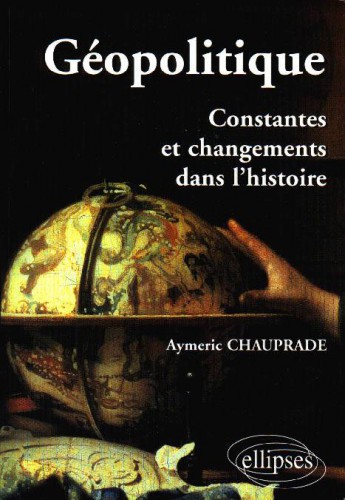 Ma réponse ne sera pas très utile, d’abord parce que je ne suis pas français même si j’utilise le plus souvent la langue française. Je n’ai guère d’affinités, comme la plupart de mes compatriotes, avec la pensée politique française, très éloignée de nos modes d’action et de nos préoccupations idéologiques et politiques. Sur l’Europe et sur la Russie, les Français ont toujours eu dans l’histoire des visions totalement différentes des nôtres. On nous enseignait que le modèle indépassable pour l’Europe était la vision lotharingienne de Charles dit le Téméraire (nous devions dire: “Charles ou Karle le Hardi”, le terme “téméraire” étant jugé injurieux et de fabrication française), la Grande Alliance forgée par l’Empereur Maximilien I entre l’héritage des Bourguignons et des Habsbourgs et celui de la Castille-Aragon par le mariage de son fils Philippe et de la princesse Jeanne, l’Empire universel de Charles-Quint, toutes formes politiques respectables que d’affreux personnages, disaient nos instituteurs, comme Louis XI (“l’Universelle Aragne”) ou le félon François I avaient délibérément saboté en s’alliant aux Ottomans. Je vous passe les descriptions très négatives que l’on nous donnait de Louis XIV, des sans-culottes et des jacobins ou encore de Napoléon III. Ce dernier a notamment participé à la première guerre, fomentée par les Britanniques, contre la Russie tsariste, la Guerre de Crimée, une fois de plus avec le concours des Ottomans, tandis que la Belgique, à l’époque, était plutôt pro-russe, à l’instar de Bismarck. Le communisme a connu des succès retentissants en France, en s’alliant avec le vieux fonds criminel jacobin, tandis qu’en Belgique le communisme a toujours été très marginal, n’a pas connu des figures avides de sang comme en URSS ou en France.
Ma réponse ne sera pas très utile, d’abord parce que je ne suis pas français même si j’utilise le plus souvent la langue française. Je n’ai guère d’affinités, comme la plupart de mes compatriotes, avec la pensée politique française, très éloignée de nos modes d’action et de nos préoccupations idéologiques et politiques. Sur l’Europe et sur la Russie, les Français ont toujours eu dans l’histoire des visions totalement différentes des nôtres. On nous enseignait que le modèle indépassable pour l’Europe était la vision lotharingienne de Charles dit le Téméraire (nous devions dire: “Charles ou Karle le Hardi”, le terme “téméraire” étant jugé injurieux et de fabrication française), la Grande Alliance forgée par l’Empereur Maximilien I entre l’héritage des Bourguignons et des Habsbourgs et celui de la Castille-Aragon par le mariage de son fils Philippe et de la princesse Jeanne, l’Empire universel de Charles-Quint, toutes formes politiques respectables que d’affreux personnages, disaient nos instituteurs, comme Louis XI (“l’Universelle Aragne”) ou le félon François I avaient délibérément saboté en s’alliant aux Ottomans. Je vous passe les descriptions très négatives que l’on nous donnait de Louis XIV, des sans-culottes et des jacobins ou encore de Napoléon III. Ce dernier a notamment participé à la première guerre, fomentée par les Britanniques, contre la Russie tsariste, la Guerre de Crimée, une fois de plus avec le concours des Ottomans, tandis que la Belgique, à l’époque, était plutôt pro-russe, à l’instar de Bismarck. Le communisme a connu des succès retentissants en France, en s’alliant avec le vieux fonds criminel jacobin, tandis qu’en Belgique le communisme a toujours été très marginal, n’a pas connu des figures avides de sang comme en URSS ou en France.
Je ne peux pas me représenter ce que ressentirait un adepte du nouveau FN de Marine Le Pen face à la Russie actuelle. Je pense que l’électorat français de base —du FN ou de tout autre parti— ne sait guère ce que représente la Russie sur le plan géopolitique. Il est donc inutile pour un parti, quel qu’il soit, de faire de la géopolitique, pro-russe ou anti-russe, pro-américaine ou anti-américaine, pro-arabe ou anti-arabe, pro-israélienne ou anti-israélienne, etc. Ce n’est pas sa tâche et, s’il en fait sa tâche, il finira par commettre des bêtises, comme le constatait d’ailleurs une figure tragique de la première moitié du 20ème siècle, l’officier, diplomate et explorateur allemand von Niedermeyer, face aux interventions insuffisantes et ineptes des partis politiques de la République de Weimar en matières de politique étrangère. Les interventions des sociaux-démocrates pour contrer les politiques de coopération avec la jeune URSS étaient l’objet des colères de von Niedermeyer. Le personnel politique de base est généralement trop inculte pour aborder raisonnablement ces questions.
Ceci dit, le FN, qu’on le veuille ou non, que l’on l’accepte ou que l’on ne l’accepte pas, remplit deux vides dans la politique française: il a recueilli énormément de voix communistes, celles d’un populisme de gauche, russophile parce qu’anciennement soviétophile, et, par voie de conséquence, des sentiments favorables à la Russie, dont son arithmétique électorale prospective doit dorénavant tenir compte; ensuite, deuxième vide, dû aux politiques successives de l’atlantiste Sarközy et du social-démocrate filandreux Hollande; tous deux ont effacé de l’horizon politique français les dernières traces du gaullisme non-aligné et, en vertu de ce non-alignement, hostile à toute prépondérance de l’hegemon américain. Le FN recueille donc, actuellement (provisoirement? définitivement?), en son sein, les résidus de russophilie communiste et les résidus du gaullisme assassiné une bonne fois pour toutes par Sarközy.
Les orientations apparemment pro-russes du nouveau FN de Marine Le Pen sont également un résultat de la fameuse affaire Chauprade. Le professeur Ayméric Chauprade, qui enseignait il y a quelques brèves années à l’école de guerre de Paris, développait une vision nationale-française et para-gaullienne dans des ouvrages de référence absolument incontournables pour tous ceux qui s’intéressent à la géopolitique comme science et comme pratique. Pour Chauprade, la France avait sur la scène internationale et en vertu de son droit de veto à l’ONU une mission anti-impériale à parfaire, en se distanciant autant que possible des projets imposés par Washington. Bref, Chauprade était une sorte de maurassien moderne, gaullien en sus. Position intéressante sauf qu’elle était justifiée par une revalorisation scandaleuse de la figure de François I, ennemi de Charles-Quint, position absolument inacceptable pour vous, Espagnol, et pour moi, Impérial. Son précis de géopolitique est toutefois indispensable pour son interprétation originale et gaullienne des stratégies anglo-saxonnes dérivées de la géopolitique de Sir Halford John Mackinder et de ses disciples. Encore plus intéressant a été le livre de Chauprade sur le choc des civilisations, où ne transparaissait heureusement plus cette apologie indécente du stato-nationalisme avant la lettre de François I (le “petit-nationalisme” fustigé par Thiriart!). Inutile de vous dire que ces deux ouvrages trônent en bonne place dans ma bibliothèque, à côté de ceux d’autres géopolitologues français: ceux de l’homme de gauche Yves Lacoste et ceux du directeur des collections “Major” des “Presses Universitaires de France”, Pascal Gauchon, qui vient de fonder la revue “Conflits” ainsi que ceux du très regretté Hervé Couteau-Bégarie, prématurément décédé. Sarközy a commis l’indicible infâmie de casser la carrière de Chauprade à l’école de guerre, sous prétexte que ce géopolitologue hors pair ne développait pas des thèses atlantistes, pareilles sans doute à celles, fumeuses et hystériques, de l’insupportable sycophante Bernard-Henry Lévy, dont les délires ont conduit à l’anéantissement de la Libye et à l’horrible guerre civile et fratricide qui n’est pas encore terminée là-bas.
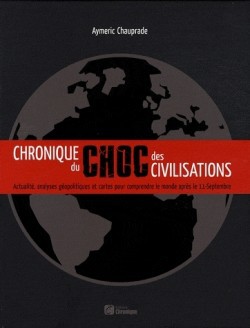 A mon très grand étonnement, Chauprade, n’a pas fait front commun avec Gauchon, par exemple, en prenant la plume pour fustiger l’abandon de toutes les positions gaulliennes par les affaires étrangères françaises, en organisant des colloques avec des sceptiques de gauche comme Jacques Julliard ou Jacques Sapir. Au lieu de tout cela, au lieu de toutes ces bonnes actions potentielles, il a adhéré au FN, ce qui n’est pas une bonne idée pour défendre sur le long terme ses positions sans risquer les entraves politiciennes que peut subir, tout d’un coup et le cas échéant, tout intellectuel pointu et pertinent qui s’embarque dans une aventure politique. Car la politique, en toute période triviale de l’histoire comme la nôtre, est un espace irrationnel, flou, imprécis, soumis à toutes les variations possibles et imaginables. Celles-ci, d’ailleurs, ne se sont pas fait attendre: hostile à la géopolitique de l’hegemon américain dans ses excellents ouvrages de référence, Chauprade, par compromis politicien, aligne ses positions de militant FN néophyte sur la nouvelle politique d’Obama face à l’EIIL, alors que ce sont les Etats-Unis, l’Arabie Saoudite et le Qatar qui sont responsables de l’émergence de ce djihadisme virulent et du chaos indescriptible qu’il a provoqué en Syrie, au détriment du régime baathiste et en Irak au détriment de la majorité chiite et de la minorité kurde (dans une moindre mesure). Une position vraiment non alignée, gaullienne, aurait été de dire: “nous refusons de participer au nettoyage du Levant et de l’Irak, réclamé par Obama —les Américains et leurs alliés pétro-monarchistes y ont créé le chaos et les Européens doivent maintenant payer pour réparer les dégâts!— car notre seule politique est de vouloir le retour au statu quo ante dans la région, car ce statu quo ante évitait la présence belligène d’éléments fondamentalistes incontrôlables et créait la paix civile par l’imposition d’un système militaro-politique moderne et syncrétique, seul apte à gérer les diversités et divergences effervescentes de cette zone-clef de la géostratégie internationale; de plus, le prix à payer pour ce travail de nettoyage est trop élevé pour une Europe encore fragilisée par la crise de l’automne 2008: cet argent doit servir exclusivement à nos infrastructures hospitalières, à nos écoles, à nos départements de recherche et développement, au sauvetage de notre sécurité sociale”. Chauprade vient d’ailleurs d’être mis sur la sellette dans les colonnes du mensuel Le Causeur (octobre 2014), où on l’appelle à justifier ses positions actuelles, parfois contradictoires par rapport à ses écrits scientifiques antérieurs.
A mon très grand étonnement, Chauprade, n’a pas fait front commun avec Gauchon, par exemple, en prenant la plume pour fustiger l’abandon de toutes les positions gaulliennes par les affaires étrangères françaises, en organisant des colloques avec des sceptiques de gauche comme Jacques Julliard ou Jacques Sapir. Au lieu de tout cela, au lieu de toutes ces bonnes actions potentielles, il a adhéré au FN, ce qui n’est pas une bonne idée pour défendre sur le long terme ses positions sans risquer les entraves politiciennes que peut subir, tout d’un coup et le cas échéant, tout intellectuel pointu et pertinent qui s’embarque dans une aventure politique. Car la politique, en toute période triviale de l’histoire comme la nôtre, est un espace irrationnel, flou, imprécis, soumis à toutes les variations possibles et imaginables. Celles-ci, d’ailleurs, ne se sont pas fait attendre: hostile à la géopolitique de l’hegemon américain dans ses excellents ouvrages de référence, Chauprade, par compromis politicien, aligne ses positions de militant FN néophyte sur la nouvelle politique d’Obama face à l’EIIL, alors que ce sont les Etats-Unis, l’Arabie Saoudite et le Qatar qui sont responsables de l’émergence de ce djihadisme virulent et du chaos indescriptible qu’il a provoqué en Syrie, au détriment du régime baathiste et en Irak au détriment de la majorité chiite et de la minorité kurde (dans une moindre mesure). Une position vraiment non alignée, gaullienne, aurait été de dire: “nous refusons de participer au nettoyage du Levant et de l’Irak, réclamé par Obama —les Américains et leurs alliés pétro-monarchistes y ont créé le chaos et les Européens doivent maintenant payer pour réparer les dégâts!— car notre seule politique est de vouloir le retour au statu quo ante dans la région, car ce statu quo ante évitait la présence belligène d’éléments fondamentalistes incontrôlables et créait la paix civile par l’imposition d’un système militaro-politique moderne et syncrétique, seul apte à gérer les diversités et divergences effervescentes de cette zone-clef de la géostratégie internationale; de plus, le prix à payer pour ce travail de nettoyage est trop élevé pour une Europe encore fragilisée par la crise de l’automne 2008: cet argent doit servir exclusivement à nos infrastructures hospitalières, à nos écoles, à nos départements de recherche et développement, au sauvetage de notre sécurité sociale”. Chauprade vient d’ailleurs d’être mis sur la sellette dans les colonnes du mensuel Le Causeur (octobre 2014), où on l’appelle à justifier ses positions actuelles, parfois contradictoires par rapport à ses écrits scientifiques antérieurs.
Seules les visites de Chauprade à Moscou, où il plaide en faveur de la politique familiale du Président Poutine, permettent de conclure à une néo-russophilie non communiste au sein du FN, puisque, désormais, le géopolitologue, chassé de sa chaire par Sarközy, en fait partie. Ce soutien à la politique familiale n’est pas exclusivement géopolitique: la France profonde —avec le mouvement “Manif’ pour tous”, téléguidé entre autres par “Civitas”— entend défendre la famille contre les politiques socialistes et sociétalistes (comme on se plait à le souligner maintenant par le biais de ce néologisme) du gouvernement de François Hollande au point que même l’électorat catholique de la France profonde préfère la politique familiale du président russe, en dépit d’une indécrottable russophobie occidentale, qui marquait aussi la France non communiste, et que dénonce avec brio l’éditeur Slobodan Despot, installé sur les rives du Lac Léman.
(Forest-Flotzenberg, octobre 2014).
Notes:
(1) Alexander Yanov, Alexander YANOV, “The Russian New Right – Right-Wing Ideologies in the Contemporary USSR”, Institute of International Studies, University of California, Berkley, 1978.
(2) Geneviève DUCHENNE, Esquisses d’une Europe nouvelle – L’européisme dans la Belgique de l’entre-deux-guerres (1919-1939), P.I.E. Peter Lang, Bruxelles, 2008.
(3) Els WITTE, Voor vrede, democratie, wereldburgerschap en Europa – Belgische historici en de naoorlogse politiek-ideologische projecten (1944-1956), Uitgeverij Pelckmans, Antwerpen, 2009.





 del.icio.us
del.icio.us
 Digg
Digg
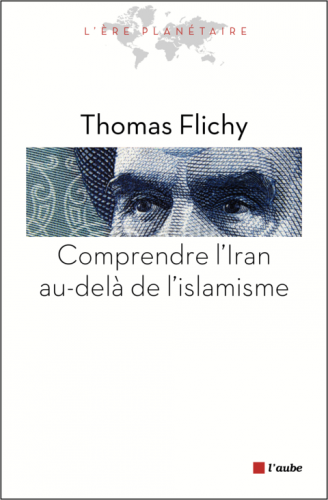
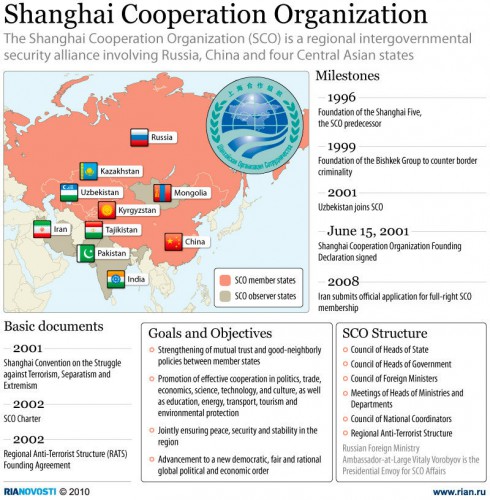
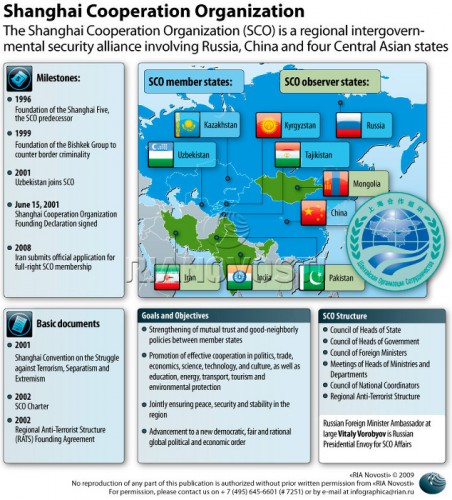
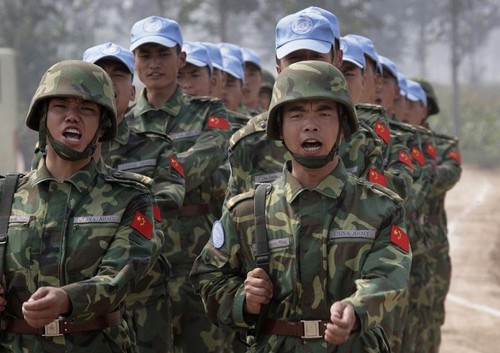
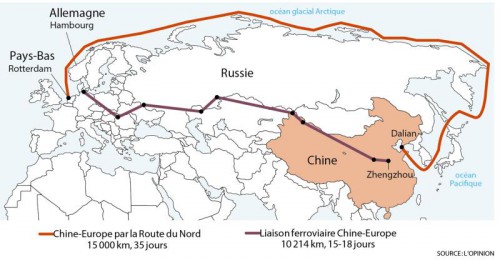




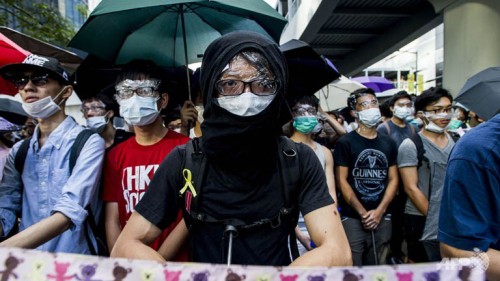
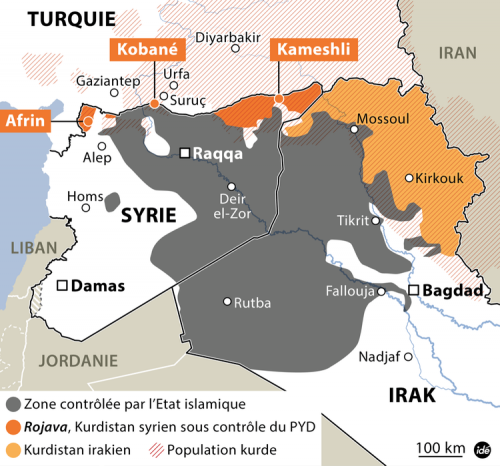
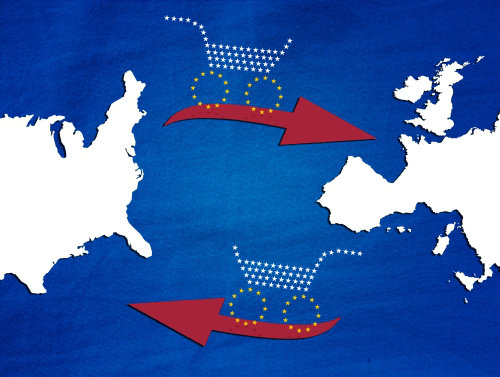
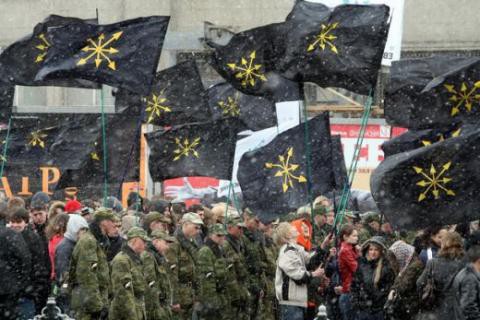
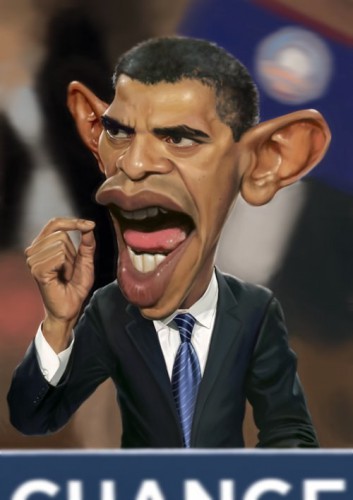 The United States is wagging its finger at Zimbabwe,
The United States is wagging its finger at Zimbabwe, 
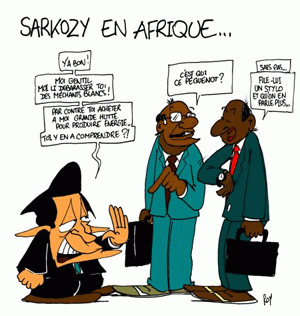 George Bush désintégra l'Irak et Nicolas Sarkozy la Libye, deux pays qui étaient des remparts contre l'islamisme. La Libye du colonel Kadhafi était, de plus, devenue un partenaire essentiel dans la lutte contre la déferlante migratoire venue de la mer, phénomène si bien annoncé par Jean Raspail dans son prophétique Camp des Saints.
George Bush désintégra l'Irak et Nicolas Sarkozy la Libye, deux pays qui étaient des remparts contre l'islamisme. La Libye du colonel Kadhafi était, de plus, devenue un partenaire essentiel dans la lutte contre la déferlante migratoire venue de la mer, phénomène si bien annoncé par Jean Raspail dans son prophétique Camp des Saints. 4) Le plus insolite fut son « discours de Dakar », dans lequel il osa déclarer que si l'Afrique n'est, selon lui, pas entrée dans l'histoire, c'est parce qu'elle ne s'est pas soumise au dogme démocratique...
4) Le plus insolite fut son « discours de Dakar », dans lequel il osa déclarer que si l'Afrique n'est, selon lui, pas entrée dans l'histoire, c'est parce qu'elle ne s'est pas soumise au dogme démocratique...
 Jean Thiriart n’a pas, à proprement parlé, rédigé de travaux spécifiquement géopolitiques. Dans les années 60, à l’apogée de son engagement politique sur la petite scène belge (assurément trop étroite pour lui!), il a cependant montré qu’il avait du flair en la matière. Dans l’espace de plus en plus réduit de ceux qui déploraient la défaite européenne (et non pas seulement allemande) de 1945, Thiriart, qui avait horreur des nostalgies qu’il considérait comme des anachronismes incapacitants, voulait réconcilier les volontés, de gauche comme de droite, rejetées dans les marges de nos mondes politiques au moment où se déployait la société de consommation, celle “du frigidaire et du Coca-Cola de Tokyo à San Francisco”. On peut évidemment affirmer que Thiriart opte pour cette position —celle de réconcilier les volontés apparemment hétérogènes sur le plan idéologique— afin d’adopter un discours de “libération continentale”, de dégager l’Europe de l’Ouest et l’Europe de l’Est de la bipolarité instaurée à Yalta en 1945, parce qu’il est lucide et rationnel et sent bien que cette césure au beau milieu du continent entraîne, sur le long terme, la déchéance de notre espace civilisationnel. De fait, Thiriart vouait aux gémonies les irrationalismes politiques, ce qu’il appelait les “romantismes incapacitants”, les délires du “zoo politique” et du “racisme des sexuellement impuissants” relevant, selon lui, psychanalyste amateur à ses heures, de la psycho-pathologie et non de la “politique politique”, selon l’expression de Julien Freund, autre pourfendeur des “impolitismes”. Thiriart ne mâchait jamais ses mots, il avait la parole dure, il nous engueulait copieusement et c’est surtout pour cela que je me souviens de lui avec grande tendresse, notamment en circulant dans le quartier que nous habitions tous deux et où je le vois encore promener son chien noir ou embarquer dans son mobile-home, monté sur 4X4 Toyota. Cependant —et nous ne le devinions que vaguement— Thiriart était tributaire d’un contexte idéologique d’avant-guerre, aujourd’hui exploré pour la première fois scientifiquement, et de manière exhaustive.
Jean Thiriart n’a pas, à proprement parlé, rédigé de travaux spécifiquement géopolitiques. Dans les années 60, à l’apogée de son engagement politique sur la petite scène belge (assurément trop étroite pour lui!), il a cependant montré qu’il avait du flair en la matière. Dans l’espace de plus en plus réduit de ceux qui déploraient la défaite européenne (et non pas seulement allemande) de 1945, Thiriart, qui avait horreur des nostalgies qu’il considérait comme des anachronismes incapacitants, voulait réconcilier les volontés, de gauche comme de droite, rejetées dans les marges de nos mondes politiques au moment où se déployait la société de consommation, celle “du frigidaire et du Coca-Cola de Tokyo à San Francisco”. On peut évidemment affirmer que Thiriart opte pour cette position —celle de réconcilier les volontés apparemment hétérogènes sur le plan idéologique— afin d’adopter un discours de “libération continentale”, de dégager l’Europe de l’Ouest et l’Europe de l’Est de la bipolarité instaurée à Yalta en 1945, parce qu’il est lucide et rationnel et sent bien que cette césure au beau milieu du continent entraîne, sur le long terme, la déchéance de notre espace civilisationnel. De fait, Thiriart vouait aux gémonies les irrationalismes politiques, ce qu’il appelait les “romantismes incapacitants”, les délires du “zoo politique” et du “racisme des sexuellement impuissants” relevant, selon lui, psychanalyste amateur à ses heures, de la psycho-pathologie et non de la “politique politique”, selon l’expression de Julien Freund, autre pourfendeur des “impolitismes”. Thiriart ne mâchait jamais ses mots, il avait la parole dure, il nous engueulait copieusement et c’est surtout pour cela que je me souviens de lui avec grande tendresse, notamment en circulant dans le quartier que nous habitions tous deux et où je le vois encore promener son chien noir ou embarquer dans son mobile-home, monté sur 4X4 Toyota. Cependant —et nous ne le devinions que vaguement— Thiriart était tributaire d’un contexte idéologique d’avant-guerre, aujourd’hui exploré pour la première fois scientifiquement, et de manière exhaustive.  En effet, il existait un “européisme” belge avant 1940, qui avait pris son envol au lendemain de la première guerre mondiale. Docteur en histoire à l’Université catholique de Louvain, Geneviève Duchenne a systématiquement cartographié ces “esquisses d’une Europe nouvelle” (2), où les adversaires de toute réédition de la Grande Guerre évoquaient les possibilités de transcender les inimitiés létales qui avait fait déchoir l’Europe face, notamment, aux Etats-Unis montants ou face, déjà, à une URSS qui se targuait de forger un modèle de société indépassable, annonçant au forceps “la fin heureuse de l’histoire”. Parmi ces mouvements européistes, ou paneuropéens (Coudenhove-Kalergi), il y eut le “Bloc d’Action européenne”, qui a émergé dans les milieux d’une gauche très non conformiste, sympathique et anarchisante, “Le Rouge et le Noir”, où officiait Pierre Fontaine qui, après 1945, évoluera vers une “droite” représentée par l’hebdomadaire Europe magazine (première mouture); ensuite, ce “Bloc d’Action”, qui a oeuvré de 1931 à 1933, fut suivi d’un “Front européen” (1932-1933), animé par des diamantaires juifs d’Anvers et par des Flamands francophones, plutôt catholiques, actifs dans la biscuiterie, se réclamant de l’idéologie briandiste, fustigée par les nationalistes d’Action française. De 1932 à 1940, se crée l’”Union Jeune Europe” (UJE), dont l’inspiration initiale sera “helvétisante” —on veut une Europe démocratique selon le modèle suisse—, comme l’attestent ses premiers bulletins Agir puis Jeune Europe. L’UJE plaide pour un recentrage continental européen, jugé plus efficace que la fédération universelle qu’entendait incarner la SdN. Le mouvement cherchera, sous la bannière du briandisme, à parfaire une réconciliation belgo-allemande, à purger les discours politiques de toutes les scories de germanophobie, en vigueur depuis le viol de la neutralité belge en août 1914. Il finira germanophile au nom d’un pacifisme intereuropéen. Il est difficile de dire, aujourd’hui, quels sont les ingrédients de ces discours briandistes et paneuropéens, plus ou moins germanophiles, qui ont influencé le jeune Thiriart entre, disons, 1937 et 1940. Il est toutefois évident que les strates pensantes de la société belge d’avant-guerre, à gauche comme à droite de l’échiquier politique, optent pour une carte européiste, qui pourra éventuellement déboucher sur une forme ou une autre de collaboration pendant la seconde guerre mondiale. Après 1945, les factions non collaboratrices reprendront les aspects les plus “démocratiques” de ce briando-européisme et l’appliqueront au processus de construction européenne, comme le démontre l’historienne flamande Els Witte (VUB) (3), qui constate aussi, par ailleurs, que les historiens qui ont plaidé pour ces formes “démocratiques” (néo-briandistes, sociales-démocrates et maritainistes/démocrates-chrétiennes), entendaient se débarrasser de “tout finalisme belgiciste”, c’est-à-dire de tout finalisme “petit-nationaliste”, comme le dira Thiriart, en fustigeant les éléments nationalistes et “belgicistes” de droite, présents dans son propre mouvement “Jeune Europe” au début des années 60.
En effet, il existait un “européisme” belge avant 1940, qui avait pris son envol au lendemain de la première guerre mondiale. Docteur en histoire à l’Université catholique de Louvain, Geneviève Duchenne a systématiquement cartographié ces “esquisses d’une Europe nouvelle” (2), où les adversaires de toute réédition de la Grande Guerre évoquaient les possibilités de transcender les inimitiés létales qui avait fait déchoir l’Europe face, notamment, aux Etats-Unis montants ou face, déjà, à une URSS qui se targuait de forger un modèle de société indépassable, annonçant au forceps “la fin heureuse de l’histoire”. Parmi ces mouvements européistes, ou paneuropéens (Coudenhove-Kalergi), il y eut le “Bloc d’Action européenne”, qui a émergé dans les milieux d’une gauche très non conformiste, sympathique et anarchisante, “Le Rouge et le Noir”, où officiait Pierre Fontaine qui, après 1945, évoluera vers une “droite” représentée par l’hebdomadaire Europe magazine (première mouture); ensuite, ce “Bloc d’Action”, qui a oeuvré de 1931 à 1933, fut suivi d’un “Front européen” (1932-1933), animé par des diamantaires juifs d’Anvers et par des Flamands francophones, plutôt catholiques, actifs dans la biscuiterie, se réclamant de l’idéologie briandiste, fustigée par les nationalistes d’Action française. De 1932 à 1940, se crée l’”Union Jeune Europe” (UJE), dont l’inspiration initiale sera “helvétisante” —on veut une Europe démocratique selon le modèle suisse—, comme l’attestent ses premiers bulletins Agir puis Jeune Europe. L’UJE plaide pour un recentrage continental européen, jugé plus efficace que la fédération universelle qu’entendait incarner la SdN. Le mouvement cherchera, sous la bannière du briandisme, à parfaire une réconciliation belgo-allemande, à purger les discours politiques de toutes les scories de germanophobie, en vigueur depuis le viol de la neutralité belge en août 1914. Il finira germanophile au nom d’un pacifisme intereuropéen. Il est difficile de dire, aujourd’hui, quels sont les ingrédients de ces discours briandistes et paneuropéens, plus ou moins germanophiles, qui ont influencé le jeune Thiriart entre, disons, 1937 et 1940. Il est toutefois évident que les strates pensantes de la société belge d’avant-guerre, à gauche comme à droite de l’échiquier politique, optent pour une carte européiste, qui pourra éventuellement déboucher sur une forme ou une autre de collaboration pendant la seconde guerre mondiale. Après 1945, les factions non collaboratrices reprendront les aspects les plus “démocratiques” de ce briando-européisme et l’appliqueront au processus de construction européenne, comme le démontre l’historienne flamande Els Witte (VUB) (3), qui constate aussi, par ailleurs, que les historiens qui ont plaidé pour ces formes “démocratiques” (néo-briandistes, sociales-démocrates et maritainistes/démocrates-chrétiennes), entendaient se débarrasser de “tout finalisme belgiciste”, c’est-à-dire de tout finalisme “petit-nationaliste”, comme le dira Thiriart, en fustigeant les éléments nationalistes et “belgicistes” de droite, présents dans son propre mouvement “Jeune Europe” au début des années 60.  Ma réponse ne sera pas très utile, d’abord parce que je ne suis pas français même si j’utilise le plus souvent la langue française. Je n’ai guère d’affinités, comme la plupart de mes compatriotes, avec la pensée politique française, très éloignée de nos modes d’action et de nos préoccupations idéologiques et politiques. Sur l’Europe et sur la Russie, les Français ont toujours eu dans l’histoire des visions totalement différentes des nôtres. On nous enseignait que le modèle indépassable pour l’Europe était la vision lotharingienne de Charles dit le Téméraire (nous devions dire: “Charles ou Karle le Hardi”, le terme “téméraire” étant jugé injurieux et de fabrication française), la Grande Alliance forgée par l’Empereur Maximilien I entre l’héritage des Bourguignons et des Habsbourgs et celui de la Castille-Aragon par le mariage de son fils Philippe et de la princesse Jeanne, l’Empire universel de Charles-Quint, toutes formes politiques respectables que d’affreux personnages, disaient nos instituteurs, comme Louis XI (“l’Universelle Aragne”) ou le félon François I avaient délibérément saboté en s’alliant aux Ottomans. Je vous passe les descriptions très négatives que l’on nous donnait de Louis XIV, des sans-culottes et des jacobins ou encore de Napoléon III. Ce dernier a notamment participé à la première guerre, fomentée par les Britanniques, contre la Russie tsariste, la Guerre de Crimée, une fois de plus avec le concours des Ottomans, tandis que la Belgique, à l’époque, était plutôt pro-russe, à l’instar de Bismarck. Le communisme a connu des succès retentissants en France, en s’alliant avec le vieux fonds criminel jacobin, tandis qu’en Belgique le communisme a toujours été très marginal, n’a pas connu des figures avides de sang comme en URSS ou en France.
Ma réponse ne sera pas très utile, d’abord parce que je ne suis pas français même si j’utilise le plus souvent la langue française. Je n’ai guère d’affinités, comme la plupart de mes compatriotes, avec la pensée politique française, très éloignée de nos modes d’action et de nos préoccupations idéologiques et politiques. Sur l’Europe et sur la Russie, les Français ont toujours eu dans l’histoire des visions totalement différentes des nôtres. On nous enseignait que le modèle indépassable pour l’Europe était la vision lotharingienne de Charles dit le Téméraire (nous devions dire: “Charles ou Karle le Hardi”, le terme “téméraire” étant jugé injurieux et de fabrication française), la Grande Alliance forgée par l’Empereur Maximilien I entre l’héritage des Bourguignons et des Habsbourgs et celui de la Castille-Aragon par le mariage de son fils Philippe et de la princesse Jeanne, l’Empire universel de Charles-Quint, toutes formes politiques respectables que d’affreux personnages, disaient nos instituteurs, comme Louis XI (“l’Universelle Aragne”) ou le félon François I avaient délibérément saboté en s’alliant aux Ottomans. Je vous passe les descriptions très négatives que l’on nous donnait de Louis XIV, des sans-culottes et des jacobins ou encore de Napoléon III. Ce dernier a notamment participé à la première guerre, fomentée par les Britanniques, contre la Russie tsariste, la Guerre de Crimée, une fois de plus avec le concours des Ottomans, tandis que la Belgique, à l’époque, était plutôt pro-russe, à l’instar de Bismarck. Le communisme a connu des succès retentissants en France, en s’alliant avec le vieux fonds criminel jacobin, tandis qu’en Belgique le communisme a toujours été très marginal, n’a pas connu des figures avides de sang comme en URSS ou en France.  A mon très grand étonnement, Chauprade, n’a pas fait front commun avec Gauchon, par exemple, en prenant la plume pour fustiger l’abandon de toutes les positions gaulliennes par les affaires étrangères françaises, en organisant des colloques avec des sceptiques de gauche comme Jacques Julliard ou Jacques Sapir. Au lieu de tout cela, au lieu de toutes ces bonnes actions potentielles, il a adhéré au FN, ce qui n’est pas une bonne idée pour défendre sur le long terme ses positions sans risquer les entraves politiciennes que peut subir, tout d’un coup et le cas échéant, tout intellectuel pointu et pertinent qui s’embarque dans une aventure politique. Car la politique, en toute période triviale de l’histoire comme la nôtre, est un espace irrationnel, flou, imprécis, soumis à toutes les variations possibles et imaginables. Celles-ci, d’ailleurs, ne se sont pas fait attendre: hostile à la géopolitique de l’hegemon américain dans ses excellents ouvrages de référence, Chauprade, par compromis politicien, aligne ses positions de militant FN néophyte sur la nouvelle politique d’Obama face à l’EIIL, alors que ce sont les Etats-Unis, l’Arabie Saoudite et le Qatar qui sont responsables de l’émergence de ce djihadisme virulent et du chaos indescriptible qu’il a provoqué en Syrie, au détriment du régime baathiste et en Irak au détriment de la majorité chiite et de la minorité kurde (dans une moindre mesure). Une position vraiment non alignée, gaullienne, aurait été de dire: “nous refusons de participer au nettoyage du Levant et de l’Irak, réclamé par Obama —les Américains et leurs alliés pétro-monarchistes y ont créé le chaos et les Européens doivent maintenant payer pour réparer les dégâts!— car notre seule politique est de vouloir le retour au statu quo ante dans la région, car ce statu quo ante évitait la présence belligène d’éléments fondamentalistes incontrôlables et créait la paix civile par l’imposition d’un système militaro-politique moderne et syncrétique, seul apte à gérer les diversités et divergences effervescentes de cette zone-clef de la géostratégie internationale; de plus, le prix à payer pour ce travail de nettoyage est trop élevé pour une Europe encore fragilisée par la crise de l’automne 2008: cet argent doit servir exclusivement à nos infrastructures hospitalières, à nos écoles, à nos départements de recherche et développement, au sauvetage de notre sécurité sociale”. Chauprade vient d’ailleurs d’être mis sur la sellette dans les colonnes du mensuel Le Causeur (octobre 2014), où on l’appelle à justifier ses positions actuelles, parfois contradictoires par rapport à ses écrits scientifiques antérieurs.
A mon très grand étonnement, Chauprade, n’a pas fait front commun avec Gauchon, par exemple, en prenant la plume pour fustiger l’abandon de toutes les positions gaulliennes par les affaires étrangères françaises, en organisant des colloques avec des sceptiques de gauche comme Jacques Julliard ou Jacques Sapir. Au lieu de tout cela, au lieu de toutes ces bonnes actions potentielles, il a adhéré au FN, ce qui n’est pas une bonne idée pour défendre sur le long terme ses positions sans risquer les entraves politiciennes que peut subir, tout d’un coup et le cas échéant, tout intellectuel pointu et pertinent qui s’embarque dans une aventure politique. Car la politique, en toute période triviale de l’histoire comme la nôtre, est un espace irrationnel, flou, imprécis, soumis à toutes les variations possibles et imaginables. Celles-ci, d’ailleurs, ne se sont pas fait attendre: hostile à la géopolitique de l’hegemon américain dans ses excellents ouvrages de référence, Chauprade, par compromis politicien, aligne ses positions de militant FN néophyte sur la nouvelle politique d’Obama face à l’EIIL, alors que ce sont les Etats-Unis, l’Arabie Saoudite et le Qatar qui sont responsables de l’émergence de ce djihadisme virulent et du chaos indescriptible qu’il a provoqué en Syrie, au détriment du régime baathiste et en Irak au détriment de la majorité chiite et de la minorité kurde (dans une moindre mesure). Une position vraiment non alignée, gaullienne, aurait été de dire: “nous refusons de participer au nettoyage du Levant et de l’Irak, réclamé par Obama —les Américains et leurs alliés pétro-monarchistes y ont créé le chaos et les Européens doivent maintenant payer pour réparer les dégâts!— car notre seule politique est de vouloir le retour au statu quo ante dans la région, car ce statu quo ante évitait la présence belligène d’éléments fondamentalistes incontrôlables et créait la paix civile par l’imposition d’un système militaro-politique moderne et syncrétique, seul apte à gérer les diversités et divergences effervescentes de cette zone-clef de la géostratégie internationale; de plus, le prix à payer pour ce travail de nettoyage est trop élevé pour une Europe encore fragilisée par la crise de l’automne 2008: cet argent doit servir exclusivement à nos infrastructures hospitalières, à nos écoles, à nos départements de recherche et développement, au sauvetage de notre sécurité sociale”. Chauprade vient d’ailleurs d’être mis sur la sellette dans les colonnes du mensuel Le Causeur (octobre 2014), où on l’appelle à justifier ses positions actuelles, parfois contradictoires par rapport à ses écrits scientifiques antérieurs. 

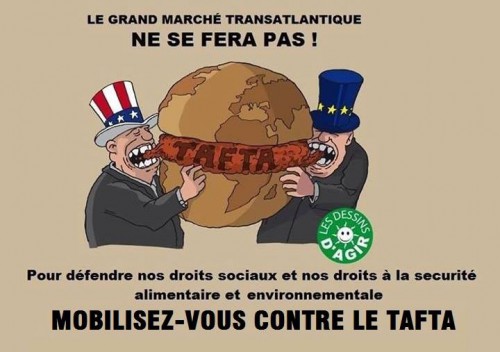
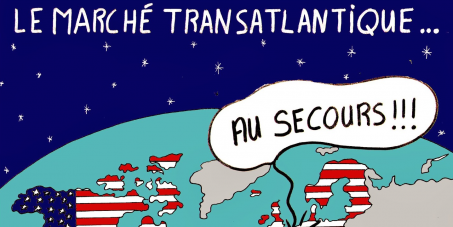
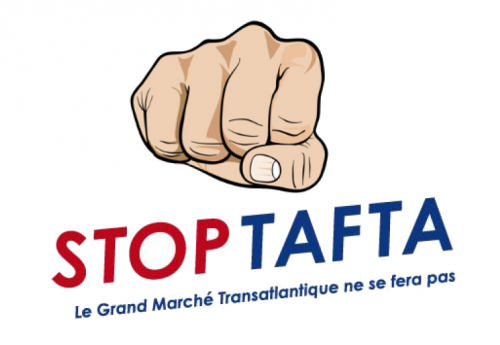

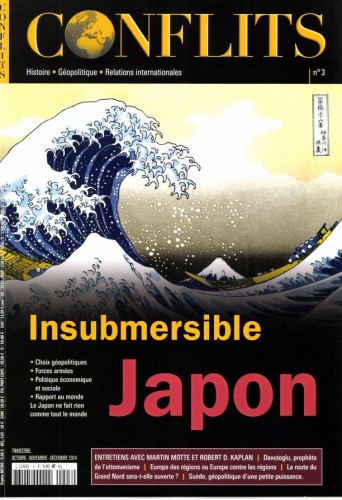
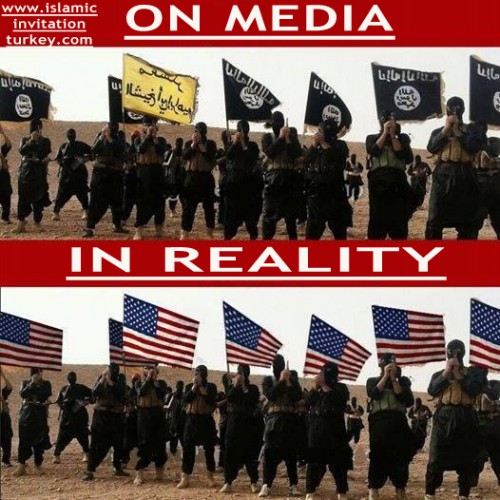
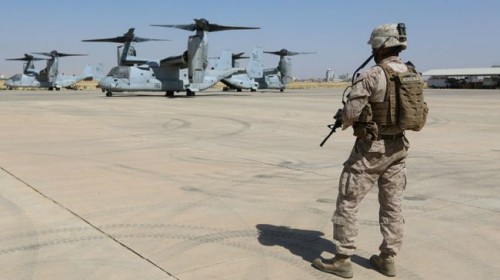
 Un profesor de la Universidad de Defensa Nacional del Ejército Popular de Liberación cree que el estallido de una tercera guerra mundial a causa de las disputas marítimas no es imposible y que China debe estar preparada para ella.
Un profesor de la Universidad de Defensa Nacional del Ejército Popular de Liberación cree que el estallido de una tercera guerra mundial a causa de las disputas marítimas no es imposible y que China debe estar preparada para ella.